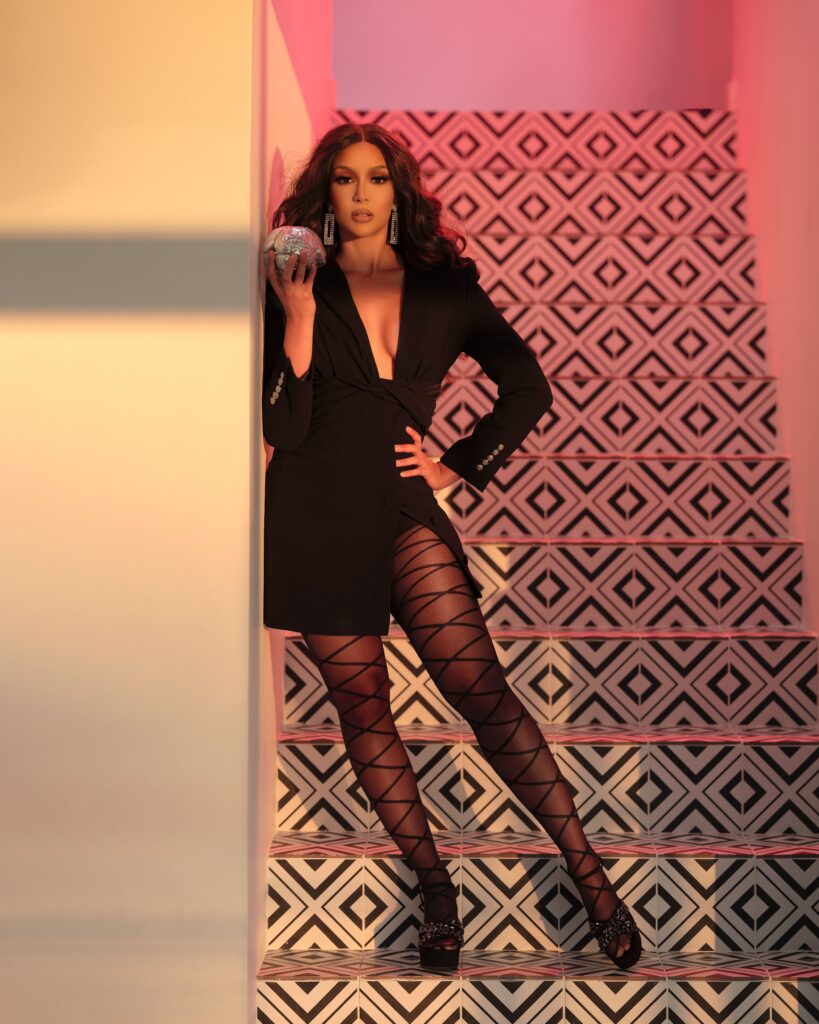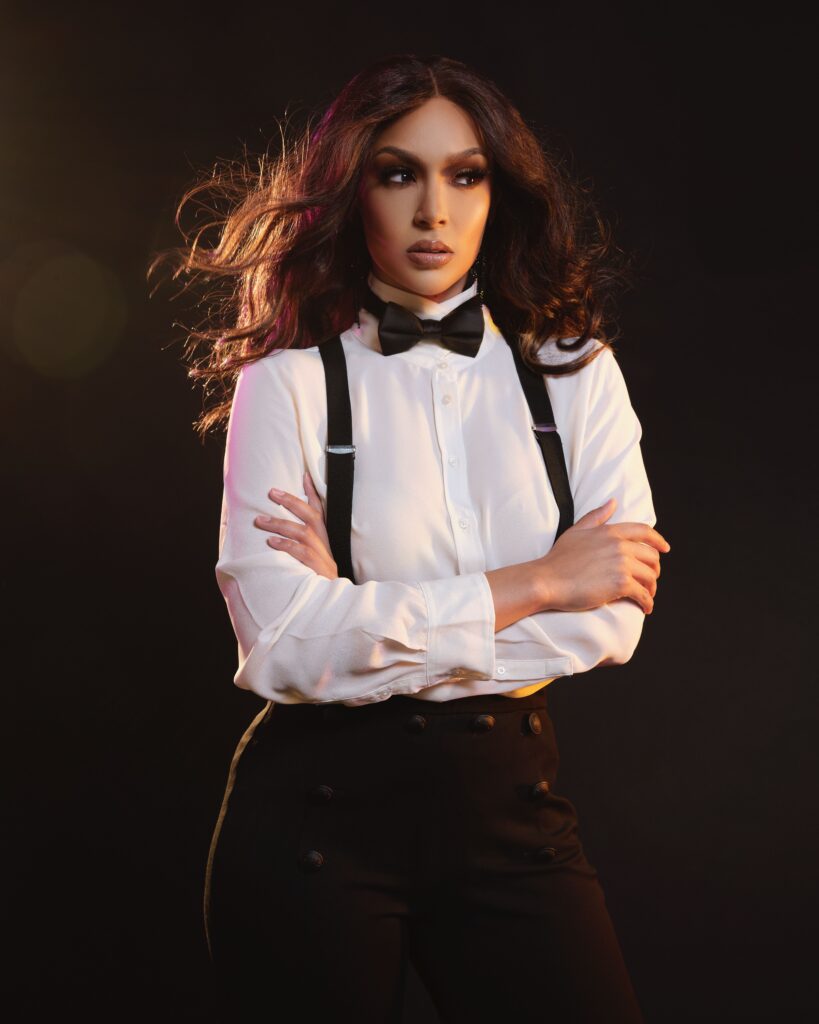( ENSPIRE Feature ) Adaire Byerly Founds Entertainment Mindframe Among Other Movements in Order to Create Positive Change in the Entertainment Industries
ENSPIRE Contributor: Keegan Kerns
During her time as a model and a commercial actress, Adaire Byerly could see first-hand the unprofessionalism that runs rampant throughout the entertainment industry. She saw how emotions were viewed improperly in the workplace, despite their necessity for healthy expression, especially within creative industries. However, despite the dreary outlook created by the environment of the industry, Ms. Byerly saw an opportunity to create positive change for the industry and others like her, leading her to begin years of research surrounding the brain and carefully taking that information and applying it to the fashion and entertainment world in ways that expose this negative behavior and build positive environments.
Adaire Byerly’s path has not been easy, and her studying and research continue to this day. Still, she has already become a licensed practitioner in Neuro-Linguistic Programming and Neuroplasticity and became certified in Cognitive-Behavioral Therapy Techniques. This continual self-improvement and ambition have enabled Adaire Byerly to create and become the CEO of Entertainment Mindframe, which helps engage with professionals in the Fashion, Sports, and Entertainment industries using cognitive science. With Entertainment Mindframe, Adaire Byerly has optimized creativity with her clients while also encouraging ethical business practices that provide comfortable and healthy environments for all employees in the industry.

ENSPIRE spoke to Adaire Byerly about her creative career, Entertainment Mindframe, her “More Than A Model Series,” and more.
Why do you believe it’s been internalized that feelings have no place in a work environment? What harm erupts from having that mindset?
I truly believe we have this outlook because of the lack of understanding we have had on the human brain. Even in the science community, although Neuroscience emerged as a distinctive discipline in the ’50s, it did not become a popular branch of study until the 2000s, so it is still on the new side of science and to the public.
Society often confuses feelings with emotions, and those are 2 different things. Your feelings are your state of reaction tied to your belief system, and your emotions are the neurological process that happens in your body. We are 100% accountable for the way we express our feelings. However, our emotions are a normal part of our make-up, so they are inevitable in the human experience whether we like it or not.
Today, we believe that feelings and emotions show that you are not professional. As a result, we have been conditioned to compartmentalize, detach, and suppress our emotions to prove we are in control of our lives and our success. The problem with this outlook is the damage it brings to us. Our bodies are not created to carry extreme tension, stress, and confusion. This can result in negative behavioral changes, inability to process & solve information accurately, can affect the hormone production in your brain & body which affects your moods, and can also break you down physically by revealing itself through health-related issues. Now imagine a team where everyone has this mindset…. It is a recipe for disaster. How can any company focus on company growth, high performance, and success if this is at the foundation of the room? It is impossible.
How do your services aid individuals to grow?
My goal is to enhance business for professionals by focusing on the science behind a creative brain. I approach this through modern brain & behavioral sciences that help my clients understand and master communication, decisions, and behavior. In addition, we identify behavioral or mental patterns that are preventing brands or companies’ success. Although I work with teams that require high performance in fast-paced industries, I will witness positive growth in individuals. This is important because each person has a major contribution to the dynamic of the team and company as a whole.
Are there different communication issues in companies with creative minds than others?
For the types of creatives, I work with, yes. When it comes to creativity, every person is creative somehow, no matter what field they are in. The difference lies in the dynamic and multiple characteristics we find amongst the industries I work in. Entertainment, Production, Film, Media, Fashion, and Sports are fast-paced industries with extremely creative and talented people. The biggest difference I see with the communication issues stems from the lack of professional structure within the company.
How has the pandemic increased your vision in teaching others about cognitive development?
The silver lining from the Pandemic has placed a spotlight on mental wellness and our ability to cope with our emotions and circumstances. It also revealed that our “normal” was not necessarily healthy for us. We could avoid certain issues in our lives because of our daily schedule, and when the pandemic stripped those schedules away, we were then forced to sit with ourselves in a way we have not before. This has caused people to respond in a survival state with our reptilian and emotional brain instead of a logical state that comes from our cognitive brain. Emotional states were at an all-time high, so it was a perfect opportunity to show others how our emotions affect our thoughts, our thoughts dictate our behavior, and behavior creates our experience.
Can you tell us more about your upcoming launch “More than a Model” YouTube Series and how it will change the face of the modeling industry?
“More than a Model” is an interview series where I feature popular models and provide them a platform to be seen as who they are rather than what society believes they are. Not only do we idolize people we see in the magazines, but Models have had long-standing stereotypes that are just not true. You get to hear first-hand what goes on behind the camera, amazing experiences, and stories that would shock you; the content breaks the stereotypes and allows human connection with the viewers. This will change the industry because we are removing the barrier of the “Model” facade and connecting people through human experience. Not only does this provide models a chance to use their voice, but it also informs and inspires others.

Adaire Byerly’s dedication to maximizing creative output in these entertainment fields while ensuring that everyone within the process is treated appropriately is essential for ethical business practices, and the unique approach she has taken enables her to stand out. Her pursuit of knowledge of the brain and mind and how that information can be applied to these industries has been incredibly successful in creating positive change, and efforts like Entertainment Mindframe and her MasterClass Series “More than a Model” help prevent these entertainment environments from becoming toxic and instead encourage deeper emotional engagement across media. We all should look towards Ms. Byerly’s efforts to effect positive change and see how we too can emulate that.
You can find out more about Ms. Byerly on her company website, LinkedIn, Instagram, and Facebook.
Related Articles: Black Female Entrepreneur, Farissa Knox, Empowers Women and Showcases Individuality







